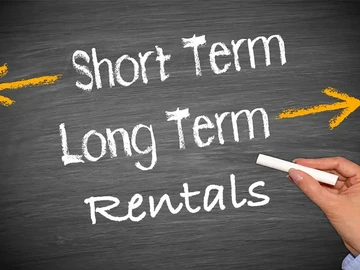With an active property market in Zimbabwe, it's an opportune time for sellers. However, to ensure a swift and smooth transaction, it is crucial that your property is fully compliant. Non-compliance can significantly delay offers or even jeopardise a sale. Full compliance, on the other hand, can dramatically speed up the sale and transfer process, giving your property an edge in the market.
It is highly recommended that sellers engage with their real estate agent and, if necessary, consult with a legal professional or service provider specializing in property compliance. This proactive approach helps resolve key issues like building plans, zoning conflicts, title restrictions, and servitudes before they become obstacles.
Key Compliance Issues for Zimbabwean Property Sellers:
1. Essential Installations & Certificates of Compliance (CoCs)
- Requirement: Various installations require valid Certificates of Compliance (CoCs) before a property can be transferred in Zimbabwe.
- Common CoCs:
- Electrical Installation Certificate: Ensures the electrical wiring and systems meet safety standards.
- Water Installation Certificate: Verifies proper plumbing and water connections.
- Electric Fence Certificate: If applicable, confirms the electric fence is safely installed and operational.
- Solar and Gas Installations: Increasingly relevant in Zimbabwe, these also require specific compliance certificates.
- Validity: Ensure all certificates are current and valid for the expected transfer period.
2. Approved Building Plans and Zoning Compliance
- Recommendation: While not always a strict precondition for all transfers, it is strongly recommended that sellers obtain a copy of their property's approved building plans.
- Verification:
- Ensure all existing building works, including extensions or alterations, are officially approved by the local authority (e.g., Harare City Council, Bulawayo City Council).
- Any unapproved structures or modifications must be rectified and signed off by the relevant municipal departments.
- Zoning: Verify that your property's use aligns with current zoning regulations (e.g., residential, commercial).
- Boundaries & Encroachments: Confirm that there are no encroachments onto neighbouring properties or public land, as this can lead to disputes and delays.
3. Disclosure of Defects (Condition of Property Report)
- Legal Obligation: In line with best practices in property transactions, sellers are expected to disclose all known material defects, both patent (obvious) and latent (hidden), to prospective buyers before an offer is made.
- Transparency: Prepare a comprehensive "Condition of Property Report" outlining the property's state. While not always mandated by a specific Zimbabwean "Property Practitioners Act" with a prescribed form as in some other jurisdictions, transparent disclosure is vital for avoiding future legal issues and fostering trust.
- Annexation: It is good practice for this report to be annexed to the selling agent's mandate and the Agreement of Sale.
4. Rates Clearance Certificate
- Mandatory Requirement: A Rates Clearance Certificate is absolutely essential before property transfer can be registered in Zimbabwe.
- Process:
- This certificate is usually obtained by the appointed conveyancing attorneys from the local municipality.
- All outstanding monies owed to the local municipality for rates, taxes, and utilities (water, refuse, sewerage) must be settled in full.
- Most municipalities also require an advance payment covering a period for the expected transfer, typically 60 days.
- Refund: Any surplus paid for the advance period is refundable to the seller after the transfer is completed.
- Deeds Registry Act: The Registrar of Deeds will not register the transfer of a property unless a valid Rates Clearance Certificate is lodged along with other required documents.
5. Other Specific Compliances
- Regional Variations: Depending on the property's location and type, additional compliance certificates might be required.
- Examples:
- Safety certificates for swimming pools.
- Certificates for lightning conductors on thatched roof properties (in specific areas).
- Crucial: These additional certificates, if applicable, must be obtained and be valid for an adequate period before the transfer can be effected.
Common Factors That Can Delay a Property Sale (Beyond Compliance):
- Buyer Finance:
- Inability to secure a mortgage loan.
- Delays in loan approval.
- Lower loan amount offered than anticipated.
- Buyer's inability to secure the required deposit.
- Seller's Role: Ensure your property is in excellent condition to secure a good valuation from banks.
- Disputes About Fixtures:
- Ambiguity regarding what is included in the sale (e.g., curtains, light fittings, built-in appliances).
- Seller's Action: Clearly stipulate any exclusions in writing and ideally, remove personal items before property viewings to prevent misunderstandings.
- Capital Gains Tax Clearance: The seller must obtain a Capital Gains Tax (CGT) Clearance Certificate from ZIMRA (Zimbabwe Revenue Authority) after payment of the assessed tax. This is a mandatory step in the conveyancing process.
- Title Deed Issues: Delays can arise from lost or incomplete original title deeds, or complexities with cession documents if the property does not have a traditional title deed.
Conveyancing Expertise:
The conveyancing process in Zimbabwe is complex and governed by the Deeds Registries Act [Chapter 20:05]. It requires the expertise of registered conveyancers to ensure legal transfer of ownership. They play a vital role in:
- Gathering all necessary documents (Title Deed, Powers of Attorney, Clearance Certificates).
- Drafting transfer documents.
- Lodging documents with the Deeds Registry.
- Ensuring compliance with all legal requirements.
By proactively addressing these compliance issues and understanding potential delays, sellers can significantly streamline the process and achieve a quicker, more successful property sale in Zimbabwe.
 Continue with Facebook
Continue with Facebook
 Continue with Email
Continue with Email














